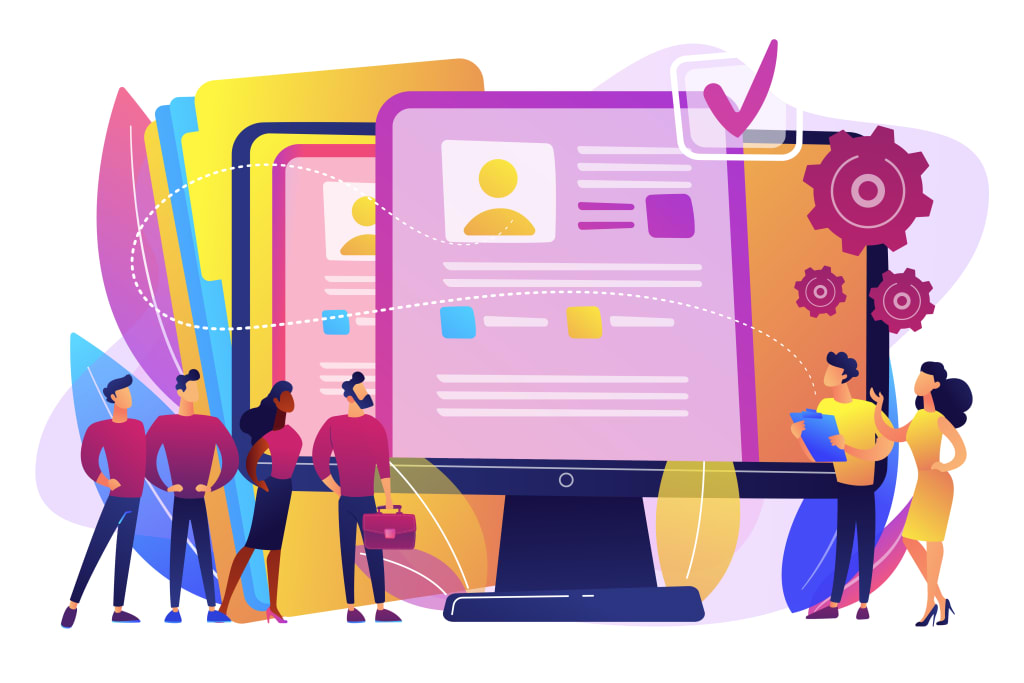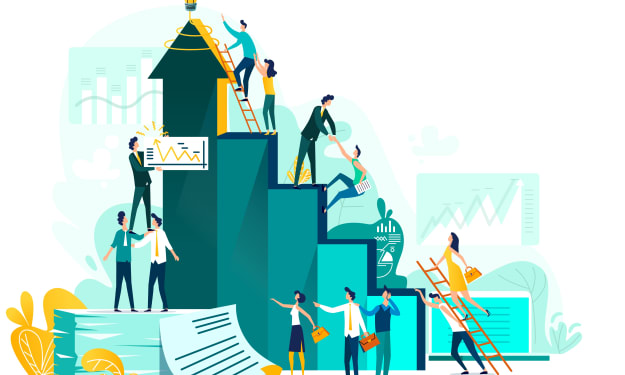HR Trends To Follow In 2023
This blog discusses 10 HR trends that are shaping the workplace, including a focus on employee experience, remote work and flexible arrangements, diversity, equity, and inclusion, and the use of AI and data analytics in HR processes. It also highlights the importance of upskilling and reskilling, mental health and well-being, environmental and social responsibility, flexible benefits and compensation, and enhanced cybersecurity in the HR field.

Human resources is a rapidly evolving field that is always changing to reflect changes in the workforce and the workplace. Some significant HR trends have emerged lately and are expected to continue to have an impact on the market in the years to come.
Focus On Employee Experience
A greater emphasis on the employee experience is among the major trends in HR. Businesses are investing in initiatives and programs that put a priority on the well-being and engagement of their workers because they understand that content employees provide greater business results. This covers everything from flexible work schedules to health initiatives and team-building exercises.
Employers are also using technology to enhance employee experiences. A few examples include the implementation of self-service portals for HR activities, the provision of mobile access to benefit information, and the provision of online training and development opportunities.
Remote Work And Flexible Schedules
The COVID-19 epidemic dramatically accelerated a trend that has been building in favor of remote work and flexible work schedules for a number of years. Employees may now work from any location with an internet connection thanks to the widespread adoption of hybrid or completely remote work models by many businesses.
This provides a number of advantages, such as reduced office space costs and the capacity to draw in and keep top people from all over the globe. The maintenance of corporate culture and ensuring that all workers have fair access to resources are difficulties that are presented by this, however.
Diversity, Equity, And Inclusion (DEI)
Workplace inclusion, equality, and diversity have drawn greater attention in recent years. A diverse workforce is crucial for innovation and success, and businesses are taking steps to recruit and retain individuals from underrepresented groups.
This entails examining and changing hiring and recruiting procedures to remove prejudice, putting diversity and inclusion training into practice, and setting up employee resource groups to aid underrepresented groups inside the company.
Artificial Intelligence And Data Analytics
Companies are utilizing data analytics and artificial intelligence (AI) to enhance decision-making and simplify HR operations as technology develops. This includes using AI-powered chatbots to respond to common HR questions, data analysis to find trends and patterns in employee behavior, and predictive analytics to foresee future HR requirements.
Yet, there are concerns about the potential for bias and discrimination in AI and data analytics, and companies must take steps to ensure that these technologies are used fairly and ethically.
Upskilling And Reskilling
The requirement for ongoing learning and development in the workforce is being driven by the quick speed of technological change. Several firms are investing in upskilling and reskilling programs to help employees adapt to new technologies and stay relevant in their fields.
Offering chances for training and development in cutting-edge domains like artificial intelligence and data analytics, as well as in soft skills like teamwork and communication, is part of this.
Agile HR
Agile approaches are being used by HR teams in order to better adapt to shifting priorities and demands as the speed of change in the workplace quickens. This entails dismantling conventional hierarchies and silos, promoting teamwork and communication, and placing emphasis on adaptation and flexibility.
Instead of depending on top-down guidance from management, agile HR also entails giving workers the freedom to take charge of their own professional growth and career pathways.
Physical And Mental Health
While mental health and well-being have always been significant, the COVID-19 epidemic brought these problems to light. In order to help workers who may be dealing with stress, anxiety, or other mental health issues, many businesses are increasingly giving priority to mental health and well-being initiatives.
This entails giving access to mental health resources and counseling services, supplying employee assistance programs, and putting into place procedures and policies that support a healthy work-life balance and lower burnout.
Responsibility For The Environment And Society
HR teams are playing a critical role in supporting and progressing these initiatives, which are becoming more crucial components in corporate operations. This involves establishing ethical sourcing guidelines, creating sustainability initiatives, and encouraging volunteering and community involvement.
By collaborating with neighborhood groups and supporting employee volunteer initiatives that address social justice concerns, HR teams may also contribute to the promotion of diversity, equality, and inclusion.
Flexible Benefits and Compensation
Conventional pay structures are no longer sufficient to draw in and keep top talent. The flexibility to choose from a variety of healthcare alternatives or to work flexible hours is just two examples of the more flexible benefits packages that many firms are now providing.
This also covers pay systems that are dependent on employee performance and contribution rather than just tenure or position.
Better Cybersecurity
Cybersecurity is a growing worry as more HR operations are conducted online. Strong password restrictions, multi-factor authentication, and routine system monitoring and auditing are just a few of the precautions HR teams must take to safeguard employee data and fend against cyberattacks.
Moreover, they need to guarantee that all business data is securely transported and kept and that workers are taught cybersecurity best practices.
Conclusion
These HR trends demonstrate how the workplace and workforce are always changing, as well as how crucial it is for HR departments to adapt to these changes. HR teams can build a workplace that is more agile, responsive, and supportive of employee growth and development by giving priority to employee experience, diversity, equality, and inclusion, upskilling and reskilling, mental health and well-being, and other critical areas.
HR professionals must be ready to innovate and adapt as technology and the nature of work change throughout time in order to stay on top of trends and support the success of their businesses. HR professionals may position themselves as strategic partners in influencing the future of work by adopting these HR trends and remaining informed of new changes in the industry.
To learn more, go to https://www.cutehr.io/hr-trends/.
About the Creator
Enjoyed the story? Support the Creator.
Subscribe for free to receive all their stories in your feed. You could also pledge your support or give them a one-off tip, letting them know you appreciate their work.





Comments
There are no comments for this story
Be the first to respond and start the conversation.